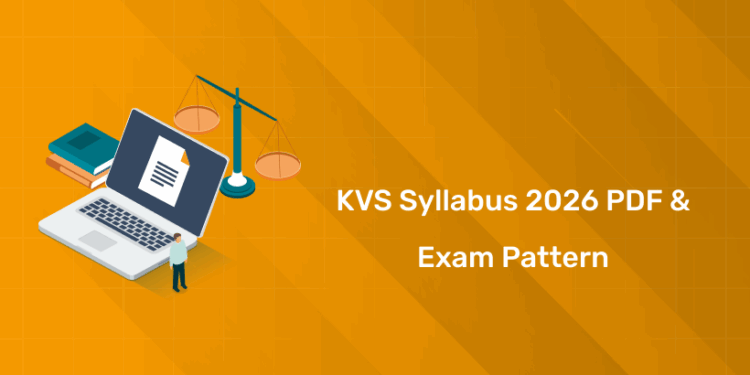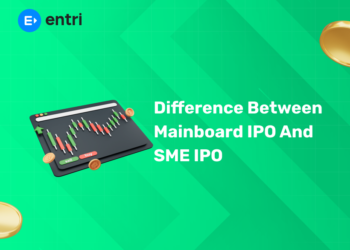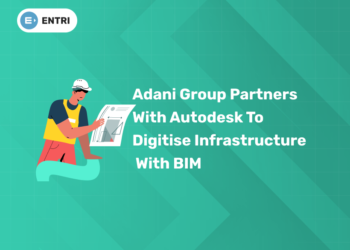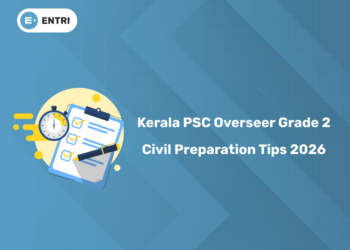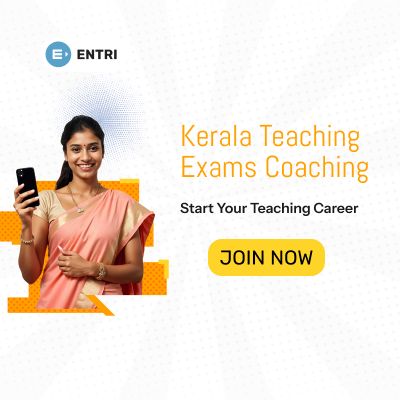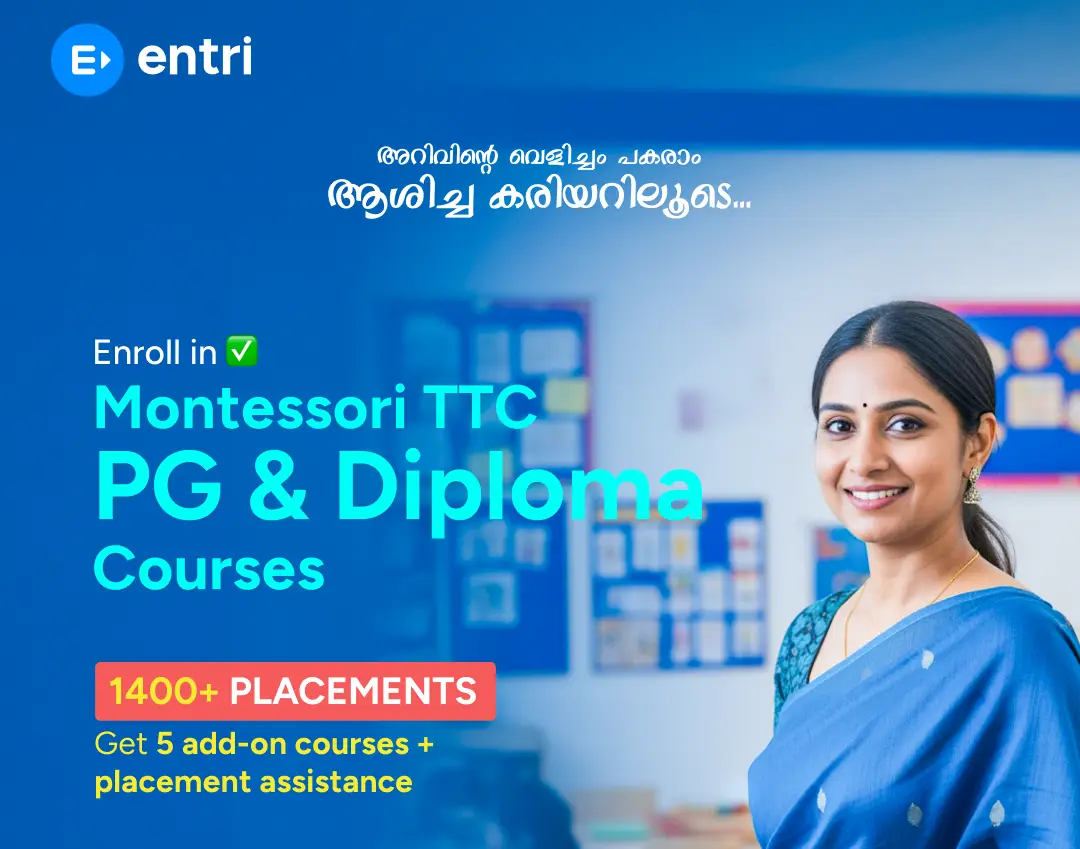Table of Contents
Get the updated KVS Syllabus 2026 for PRT, TGT, PGT and non-teaching posts in one place. This KVS exam 2026 syllabus and exam pattern guide helps you understand subject-wise topics, exam pattern, marking scheme and key preparation areas. Supportive for candidates aiming to crack the KVS recruitment 2026 (Advt. No. 01/2025) with high scores. Explore latest syllabus updates here.
KVS Syllabus 2026 PDF Download – Post-Wise PRT, TGT, PGT Syllabus Here!
To help you find everything quickly, the KVS Syllabus 2026 has been attached in the post-wise table below. You can download the syllabus PDF for KVS PRT, TGT, PGT and various administrative posts directly from here—no need to browse through long notifications. Get your syllabus now.
| KVS Post Name | Syllabus |
|---|---|
| Assistant Commissioner | |
| Principal | |
| Vice Principal | |
| PGT Hindi | |
| PGT English | |
| PGT Physics | |
| PGT Chemistry | |
| PGT Mathematics | |
| PGT Biology | |
| PGT History | |
| PGT Geography | |
| PGT Economics | |
| PGT Commerce | |
| PGT Computer Science | |
| PGT Biotechnology | |
| TGT Hindi | |
| TGT English | |
| TGT Sanskrit | |
| TGT Social Studies | |
| TGT Mathematics | |
| TGT Science | |
| TGT Physical & Health Education | |
| TGT Art Education | |
| TGT Work Experience | |
| TGT Special Educator | |
| Librarian | |
| PRT (General) | |
| PRT Music | |
| PRT Special Educator | |
| Administrative Officer | |
| Finance Officer | |
| Assistant Engineer | |
| Assistant Section Officer | |
| Junior Translator | |
| Senior Secretariat Assistant | |
| Junior Secretariat Assistant | |
| Steno Grade I | |
| Steno Grade II | |
| Lab Attendant | |
| Multi Tasking Staff (MTS) |
KVS Exam Highlights 2026 – Key Details
1: The first recipient of the ‘Rajiv Gandhi Khel Ratna’ award?
| Feature | Details |
|---|---|
| Recruiting Bodies | Kendriya Vidyalaya Sangathan (KVS), Navodaya Vidyalaya Samiti (NVS), CBSE |
| Posts Covered | PGT, TGT, PRT, Principal, Vice Principal, Assistant Commissioner, AO, FO, AE, Librarian, JSA, SSA, Stenographer, Lab Attendant, MTS |
| Selection Stages | Tier-1 (Prelims), Tier-2 (Subject Exam), Interview/Skill Test (as applicable) |
| Tier-1 Mode | OMR-Based Objective Test |
| Tier-2 Mode | Subject Knowledge Test (Objective + Descriptive) |
| Interview Weightage | 15% (for applicable posts) |
| Tier-2 Weightage | 85% (for interview posts) |
| Skill Test | For JSA, Stenographer Grade I & II |
| Negative Marking | Tier-1: 1 mark; Tier-2: 0.25 mark per wrong answer |
| Tier-1 Duration | 2 Hours (No sectional timing) |
| Tier-2 Duration | 2.5 Hours |
| Languages (Tier-1) | English + 12 Modern Indian Languages |
| Application Mode | Online through CBSE/KVS/NVS official portals |
| Eligibility | Indian Nationals only |
| Fee Exemption | SC, ST, PwBD, Ex-Servicemen (Processing fee applicable) |
| Salary Range | ₹18,000 – ₹2,09,200 (Post-wise) |
| Document Verification | Mandatory at final stage |
| Official Websites | cbse.gov.in, kvsangathan.nic.in, navodaya.gov.in |
Enroll in Kerala's Top-rated HSA Coaching Program!
സർക്കാർ ജോലി എന്ന സ്വപ്നം ഇനി സ്വപ്നം മാത്രമല്ല! Join Entri's HSA Coaching Program
Join Now!KVS Study Notes 2026: Subject-Wise Notes for PRT, TGT, PGT Free PDF
| Topics | Link |
| English Grammar | |
| English Vocabulary | |
| English Sentance Identification | |
| Computer Literacy | |
| Environmental Science | |
| Hindi Basha | |
| Numerical Ability | |
| Basic Maths | |
| Type of Setences (English) | |
| Vachan (Hindi) | |
| Linkers | |
| DNA | |
| Double Circulation (Biology | |
| GST | |
| Internal Trade | |
| Kasthurirangan Report | |
| Cardinal Utility | |
| Summer of Beautiful White Horse (English) | |
| Potrait of Lady (English) | |
| Constitution framing | |
| Mahajanapadas | |
| Correlatives | |
| Iswaran The Story Teller | |
| The lake Isle Innisfree | |
| Factors of production | |
| Social Science | |
| Russian Revolution | |
| Acts on Indian Constitution | |
| Indian Constitutional Structure | |
| Public Administration | |
| 5th Year Plan | |
| E Governance | |
| Disaster Management | |
| Indian Geography | |
| World History | |
| Indian History | |
| Law & Order | |
| Indian Polity |
KVS 2026 Mode of Selection – Post-Wise for Tier-1, Tier-2, Interview, Skill Test
The KVS Selection Process 2026 is conducted in multiple stages depending on the post. The recruitment includes Tier-1 Exam, Tier-2 Subject Test, Interview, and Skill Tests for specific posts.
KVS 2026 Posts with Tier-1, Tier-2 & Interview (85:15 Ratio)
For several academic and administrative posts, KVS conducts a two-tier exam followed by an interview. The final merit list gives 85% weightage to Tier-2 and 15% to Interview. Interview = 100 Marks
Posts Included:
- Assistant Commissioner
- Principal
- Vice Principal
- PGT (All Subjects)
- TGT including Librarian
- PRT
- Administrative Officer
- Finance Officer
- Assistant Engineer
- Junior Translator
Enroll in Kerala's Top-rated HSA Coaching Program!
സർക്കാർ ജോലി എന്ന സ്വപ്നം ഇനി സ്വപ്നം മാത്രമല്ല! Join Entri's HSA Coaching Program
Join Now!KVS 2026 Posts with Tier-1, Tier-2 & Skill Test
For clerical and stenographer categories, KVS conducts a Skill Test after Tier-2.
Final merit depends on Tier-2 performance, but the Skill Test is qualifying in nature.
Posts Included:
- Stenographer Grade-I
- Stenographer Grade-II
- Junior Secretariat Assistant
Candidates must pass typing/shorthand tests and basic computer proficiency exams.
KVS 2026 Posts with Only Tier-1 & Tier-2 (No Interview / No Skill Test)
For some administrative posts, the final merit list is prepared only based on Tier-2 marks.
Posts Included:
- Assistant Section Officer
- Senior Secretariat Assistant
These posts do not require interviews or practical assessments.
KVS Tier-1 Exam Pattern 2026 (Qualifying)
Tier-1 is a Preliminary OMR-based exam and is qualifying only. There is no separate timing for sections; the total duration is 2 hours. Each question carries 3 marks, and 1 mark is deducted for each wrong answer.
Tier-1 Pattern for All KVS Posts (Except MTS):
The paper is bilingual in English + one Modern Indian Language selected by the candidate (Hindi, Punjabi, Tamil, Telugu, Kannada, etc.)
| Section | No. of Questions | Marks |
|---|---|---|
| General Reasoning | 20 | 60 |
| Numeric Ability | 20 | 60 |
| Basic Computer Literacy | 20 | 60 |
| General Knowledge | 20 | 60 |
| English Language | 10 | 30 |
| Modern Indian Language | 10 | 30 |
| Total | 100 | 300 |
KVS Tier-1 for Multi-Tasking Staff (MTS)
| Section | No. of Questions | Marks |
|---|---|---|
| General Awareness & Current Affairs | 20 | 60 |
| Computer Operation | 40 | 120 |
| English Language | 20 | 60 |
| Modern Indian Language | 20 | 60 |
| Total | 100 | 300 |
Expected Knowledge Level for KVS 2026 Tier-1 (Post-Wise)
- PGT / Principal / Vice Principal / Assistant Commissioner → Post-Graduation level
- TGT / Admin Officer / Finance Officer / AE / ASO / Translator / Steno / SSA → Graduation level
- PRT / JSA / Lab Attendant → Senior Secondary level
- MTS → Secondary level
KVS Tier-2 Exam Pattern 2026 (Subject Knowledge Test)
- Tier-2 is a Post-Specific Subject Test, bilingual in English and Hindi.
- Duration: 2.5 hours, No sectional timing
- Negative Marking: 0.25 marks per wrong answer.
| Component | Objective Qs | Descriptive Qs | Marks |
|---|---|---|---|
| Subject Knowledge + KVS/NVS Topics | 60 | 10 | 100 |
| Total | 70 Qs | — | 100 Marks |
KVS 2026 Shortlisting Criteria
- For Interview → Top 1:3 from Tier-2
- For Skill Test → Top 1:5 from Tier-2
- Candidates scoring equal marks at the cutoff are also included.
KVS 2026 Skill Tests (Post-Wise)
Junior Secretariat Assistant
- Typing Test: 35 wpm English / 30 wpm Hindi
- Computer Proficiency (MS Word, Excel, PPT, Access, Internet) – 100 Marks (40% Required)
Stenographer Grade-I & II
- Dictation @ 80 wpm
- Transcription: 50 min (Eng) / 65 min (Hindi)
- Typing + CPT – 100 Marks (40% Required)
Detailed KVS Syllabus 2026 PDF for PGT, PRT, TGT
The KVS PRT Syllabus 2026 focuses on key topics like child development, teaching-learning methods, inclusion, school leadership, and NEP 2020 principles. It’s essential for candidates to understand these areas to excel in the exam. Go through the detailed syllabus here!
Part 1: General English
- Tenses
- Verb & Adverb
- Articles
- Error Correction
- Grammar
- Vocabulary
- Synonyms & Antonyms
- Subject-Verb Agreement
- Word Formation
- Sentence Rearrangement
- Theme Detection
- Passage Completion
- Fill in the Blanks
- Sentence Completion
- Comprehension
- Idioms & Phrases
- Unseen Passages
General Hindi
- अंत्यार्थक (प्रत्यवाची शब्द)
- व्याकरण और योग
- वाक्य विचार
- संधि
- पर्यायवाची शब्द
- व्यक्रण और रचना
- काव्याशास्त्री अभ्यास
- लेखन कौशल और पत्रकारीता
Part 2: General Knowledge and Current Affairs
- Important Days
- Indian History
- Books & Authors
- Indian National Movement
- Science: Inventions & Discoveries
- Budget and Five-Year Plans
- Current Affairs (National & International)
- Indian Economy
- Sports and Significant Events
- Abbreviations
- Capitals of India and Countries
- Science & Technology
Reasoning Ability
- Arithmetic Number Series
- Spatial Orientation
- Relationship Concepts
- Arithmetical Reasoning
- Non-verbal Series
- Observation
- Figures Classification
- Analogies
- Letter and Symbol Series
- Logical Problems
- Statement and Conclusion
- Statement and Argument
- Cause and Effect
- Logical Deduction
Computer Literacy
- Important Terms & Basics
- Paint Brush Usage
- Word Processor
- Formatting Documents
- Internet Basics
- Computer History
- PPT (PowerPoint)
- Operating Systems
- Programming Fundamentals
- Database Management
Part 3: Pedagogy
(i) Understanding the Learner
- Growth, maturation, and development principles.
- Domains of development: Physical, Cognitive, Socio-emotional, Moral.
- Understanding adolescence: Needs, challenges, and institutional support.
(ii) Understanding Teaching and Learning
- Theoretical perspectives: Behaviorism, Cognitivism, and Constructivism.
- Planning classroom instruction and creating learning spaces.
- Instructional materials and ICT integration.
(iii) Creating a Conducive Learning Environment
- Diversity, disability, and inclusion.
- School mental health and counseling.
- Developing school-community resources.
(iv) School Organization and Leadership
- Vision building and school development plans.
- Using school processes for enhancing teaching-learning.
- Partnerships with the community and educational institutions.
(v) Perspectives in Education
- NEP 2020: Curriculum and pedagogy.
- Child rights and safety.
- Historical perspectives on educational policies.
Part 4: Concerned Subject
Candidates must choose a subject based on their educational background. Below are the detailed syllabi for various subjects:
Mathematics
- Sets, Relations, Functions
- Linear Algebra, Differential Calculus
- Probability, Statistics
- Trigonometric and Inverse Trigonometric Functions
- Vectors, Geometry
Commerce
- Business Studies: Human Resource Management, Marketing, Consumer Protection
- Financial Accounting: Cost Accounting, Cash Flow Statements
English
- Reading Comprehension
- Grammar: Tenses, Modals
- Writing: Report Writing, Job Applications
- Literature
Hindi
- आदिकाल से आधुनिक काल
- पाठ्यक और व्याकरण विचार
Physics
- Thermodynamics, Optics
- Electrostatics, Magnetism
- Current Electricity
Economics
- Microeconomics: Consumer Behavior, Price Determination
- Macroeconomics: National Income, Employment
- Indian Economy: Economic Reforms, Development Policies
Geography
- Origin and Evolution of Earth
- Natural Hazards and Disaster Management
- Human Geography
Download KVS Syllabus 2026 PDF – Step-by-Step Guide
To download the KVS Syllabus 2026 PDF, follow these simple steps:
- Visit the Official KVS Website: Go to kvsangathan.nic.in.
- Go to Syllabus Section: Look for the “Syllabus” tab on the homepage.
- Select Your Post: Find the syllabus link for PGT, TGT, or PRT exams.
- Click on the Syllabus Link: Open the syllabus in PDF format.
- Download the PDF: Click on the download icon to save the syllabus to your device.
Now you’re ready to start your exam preparation!
12 Quick Preparation Tips for KVS Exam 2026
- Know the Syllabus: Study the KVS Syllabus 2026 PDF thoroughly.
- Create a Study Plan: Set daily and weekly goals.
- Focus on Key Topics: Prioritize important subjects like GK, Pedagogy, and your chosen subject.
- Strengthen Basics: Focus on foundational concepts in all subjects.
- Use Quality Resources: Refer to reliable textbooks and online materials.
- Stay Updated: Follow current affairs regularly.
- Solve Previous Papers: Understand exam patterns and difficulty.
- Revise Regularly: Schedule daily revisions to retain information.
- Take Mock Tests: Regularly assess your progress with mock exams.
- Use Online Platforms: Use app like Entri and websites for extra practice


